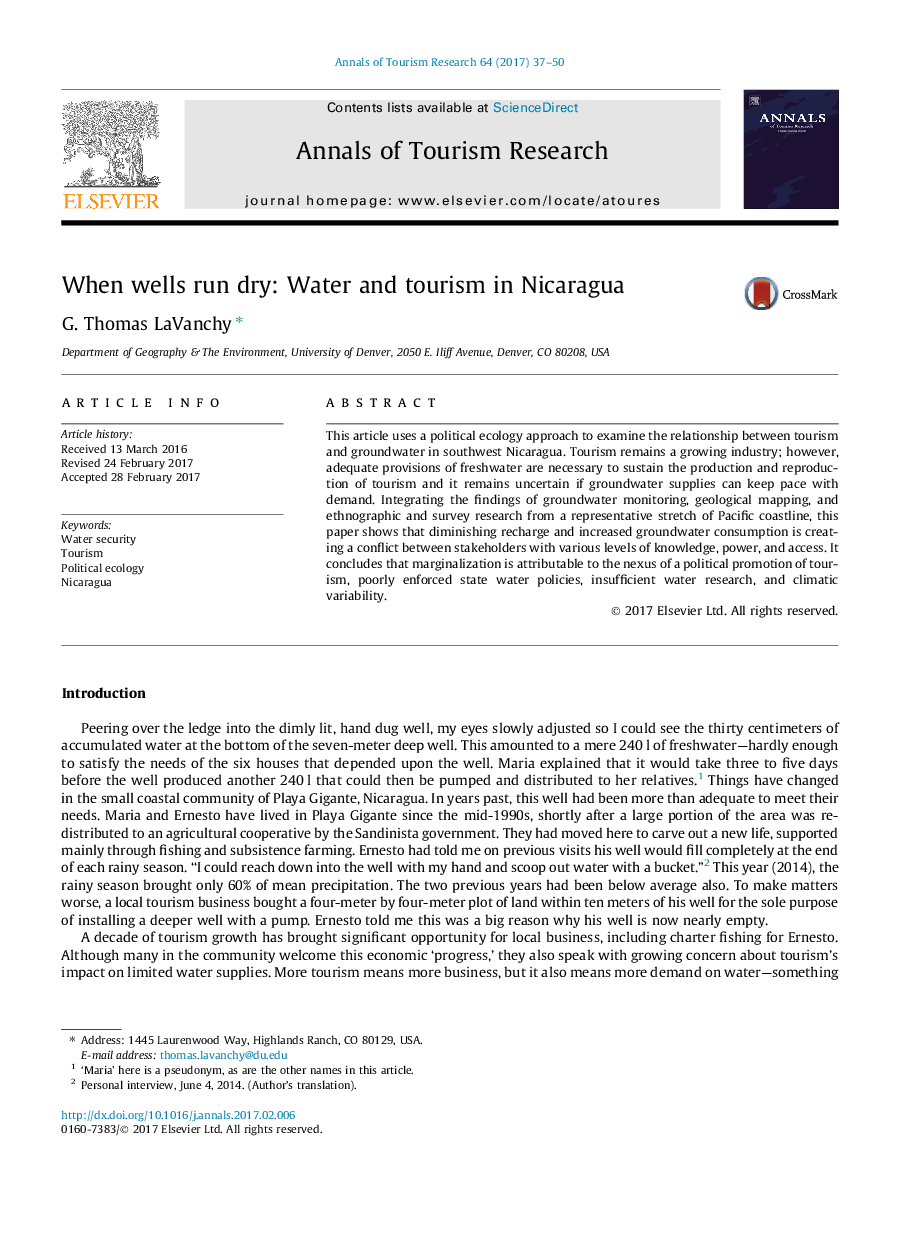ترجمه فارسی عنوان مقاله
هنگامی که چاه ها خشک می شوند: آب و گردشگری در نیکاراگوئه
عنوان انگلیسی
When wells run dry: Water and tourism in Nicaragua
| کد مقاله | سال انتشار | تعداد صفحات مقاله انگلیسی |
|---|---|---|
| 148648 | 2017 | 14 صفحه PDF |
منبع

Publisher : Elsevier - Science Direct (الزویر - ساینس دایرکت)
Journal : Annals of Tourism Research, Volume 64, May 2017, Pages 37-50
ترجمه کلمات کلیدی
امنیت آب، گردشگری، محیط زیست سیاسی، نیکاراگوئه،
کلمات کلیدی انگلیسی
Water security; Tourism; Political ecology; Nicaragua;
ترجمه چکیده
این مقاله از یک رویکرد اکولوژیکی سیاسی برای بررسی رابطه بین گردشگری و آبهای زیرزمینی در جنوب غربی نیکاراگوئه استفاده می کند. گردشگری همچنان یک صنعت در حال رشد است؛ با این حال، مقررات مناسب آب شیرین برای حفظ تولید و بازتولید گردشگری ضروری است و اگر منابع آب زیرزمینی بتوانند با تقاضا مواجه شوند، هنوز مشخص نیست. این مقاله نشان می دهد که کاهش مصرف و افزایش مصرف آب زیرزمینی منجر به ایجاد اختلاف میان ذینفعان با سطوح مختلف دانش، قدرت و دسترسی می شود. این نتیجه گیری می کند که حاشیه سازی به علت پیوند سیاسی توسعۀ گردشگری، سیاست های آب آشامیدنی دولت، تحقیق آب کم آب و تغییرات آب و هوایی است.

